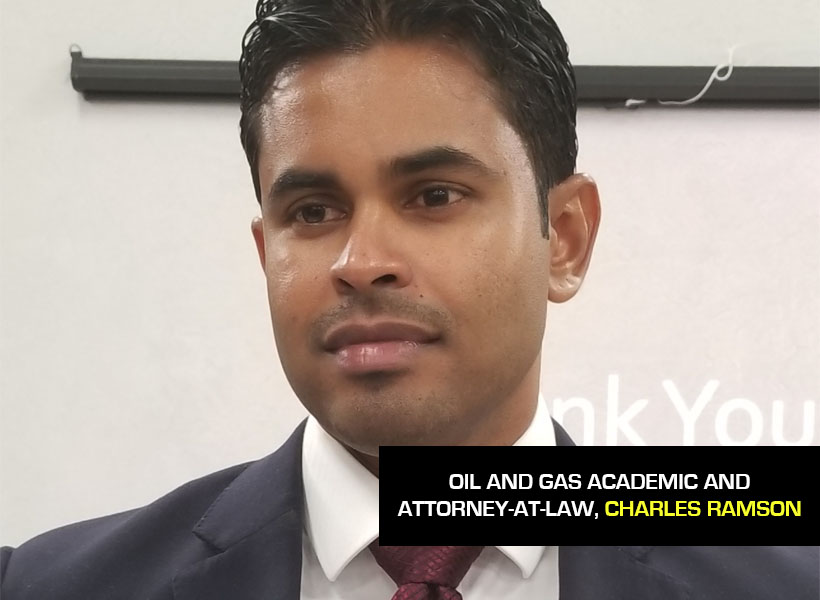Oil and Gas Academic and Attorney-at-Law, Charles Ramson recently made a presentation on Sovereign Wealth Funds (SWF) with particular focus on what Guyana needs to know and the prime examples it should strive to emulate.
At the Symposium of the Roraima Duke Lodge on Wednesday, the 34-year-old made a case for the importance of SWF and pointed to some of top funds in the world. His list included Norway, China, Abu Dhabi, Kuwait, Saudi Arabia, Singapore, and Qatar.
Indeed, these countries hold some of the “top” SWFs in the world, in terms of the size of the funds. But absent from Ramson’s presentation was the fact that Norway is the only country in the world with the most compliant SWF, especially as it relates to the Santiago Principles.
The said principles call for signatories to follow basic and consistent standards of good governance.
According to the Santiago Principles Index, only six SWFs achieve a Compliance Rating of at least 80/100, and as such are considered compliant. This group comprises the Norwegian Government Pension Fund Global; the New Zealand Superannuation Fund; the Australian Future Fund; the Economic and Social Stabilization Fund of Chile and the country’s Pension Reserve Fund; the Alaska Permanent Fund; and the Petroleum Fund of Timor-Leste. With the exception of Norway; nations such as Australia, Alaska, Timore-Leste, Chile and New Zealand do not hold the biggest or “top” SWFs in the world. (https://www.nzsuperfund.co.nz/sites/default/files/documents-sys/Santiago%20Compliance%20Index%202013%20-%20public.pdf)
Furthermore, countries such as Singapore, Azerbaijan, Trinidad and Tobago and Canada ranked within the 65 percent and 79 percent bracket of the Santiago Principles Index.
China is 61 percent compliant; Abu Dhabi is 53 percent, and Kuwait 52.
Qatar is the least compliant with the Santiago Principles, scoring 31 percent. (http://www.de-tenants.org/Report- QIAFailsToLiveUpToGoodGovernancePrinciples.html)
Several international oil and gas consultants and organizations have warned Guyanese authorities to be mindful of the “good” examples they desire to follow especially when it comes to establishing a SWF.
In selecting a country to pattern, institutions like the World Bank and the International Monetary Fund (IMF) have warned that Guyana must take into account, three important factors: its weak institutions, its history of corruption and the current state of economic and political maturity. (http://citeseerx.ist.psu.edu/viewdoc/download?doi=10.1.1.190.5115&rep=rep1&type=pdf)
World Bank Senior Country Officer, Pierre Nadji for example, has stated that Guyana must look to countries with similar characteristics and weaknesses. He said that this is necessary if Guyana intends to truly understand how to overcome its challenges in the oil and gas sector and adopt suitable solutions. It is for this reason that Chatham House, the World Bank and the IMF have often paired Guyana with Uganda during international oil and gas meetings.
Be that as it may, Oil and Gas Academic, Charles Ramson is of the view that Guyana can still look to Norway’s Sovereign Wealth Fund and its management practices as standards that must be emulated.
| Interesting fact |
| China, Kuwait, Singapore and Abu Dhabi’s make up four of the five largest funds in the world. According to the Santiago Principles Index, they do not reach full compliance. (https://www.reuters.com/article/investment-swf-transparency/many-top-sovereign-funds-fail-on-governance-transparency-report-idUSL5N0SN2MK20141028) |













